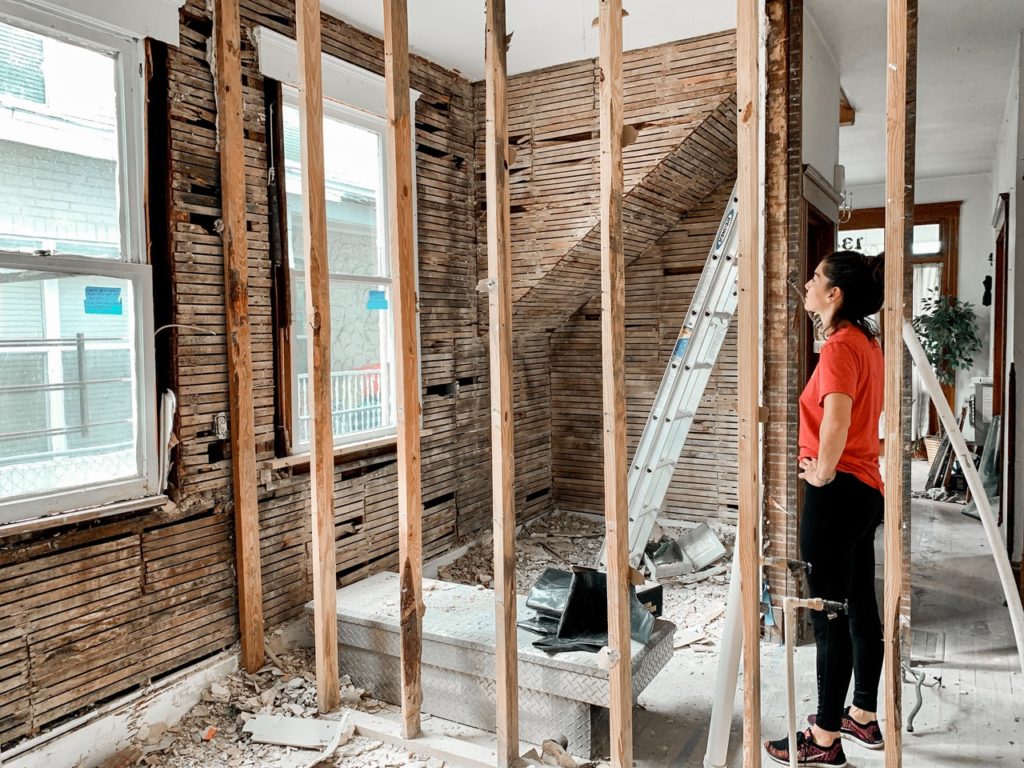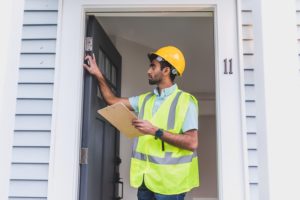
Hello Everybody, Chris Town, Owner Of Town Construction And Development And Here With Some More Great Tips On Getting Permits for New Home Additions.
It’s not rare that an old house becomes too small for a big family. In this scenario, one of the obvious things to do is build it up and make it a bit comfier. However, to do that, you’ll need more than some wood, nails, and a good contractor. Still, if it’s your dream, you’ll want to do it no matter what, and we want to help you get there. So, today we’re answering the question of what permits homeowners need for home additions.
Of course, there is no easy answer here. There are many factors to consider before anyone can tell you what kind of permitting you’ll need. Naturally, the location of your home and the type of project you have in mind will define it, but there are still plenty of small things that can tip the scale one way or another.
Because of all of that, the cost of the permits can vary quite a bit as well. You can expect to pay anywhere from $150 in rural areas to $7,500 for more extensive projects in big cities. So in Washington, on average, people spend about $1,300 on permits. And while it might be more than you expected to pay, it’s still far less than the fine you could get if you make one of the biggest mistakes people make when remodeling their homes and not get all the permits you need.
So, before you make a costly error, let’s talk permits.
The Preparation Process
When you’re making significant changes to your home, you need to get all the necessary permits and inspections during and after the project. There are traditional building permits, and they allow you or your contractor to build or add to the home. However, adding an HVAC system, changing the electrics, or replumbing will require additional permits. So before you even start negotiating with the contractors, make sure to find out what permits you’ll need.
The key here is patience. The system is complex, and we don’t recommend you try to get through it all on your own. Still, if you want to do it yourself, don’t rush it. Remember that the one who pulls the permit is responsible for work. Hence, if your contractor gets a license in your name, you’re responsible for all the work, even if you aren’t the one doing it.
Do your research on what permits homeowners need for home additions before you begin the process.
Choosing a Contractor
When it comes to your choice of contractors, go for someone local and experienced. You’ll probably need them to help you with the permits, so you want someone who knows the system and the job. And this is especially important if you’re not living in the same place where all the work is happening. You won’t be there to look over the process, so you need someone you can trust.
Make sure to get recommendations, talk to as many contractors as possible, meet with them in person, and then pick the one you’ll work with. The more effort you put into it early on, the smoother process will be.
Finally, if you are moving to Washington from another part of the country, you will also need the help of reliable movers. A professional interstate moving company can handle your transfer to Washington state and allow you to begin your life in your new home stress-free.
What Permits Do Homeowners Need for Home Additions?
You’ll be glad to hear that getting the green light from local authorities isn’t too hard. That said, there are a few steps you’ll have to go through to make everything legal.
Zoning
If you’re planning to add new floor space to your home, the first thing you need to check is zoning. Some cities limit the amount of square footage that you can have on one lot, and you need to make sure it’s allowed where you live. Furthermore, some places define the number of separate buildings you can have on the same plot.
So before you do anything, talk to the authorities and make sure your project meets the zoning requirements. There’s a chance that they’ll ask you to purchase a zoning license to continue, but it’s not necessary for all towns.
The officials will have to go over your papers to ensure everything is as it should be.
Plan Review
If everything checks out with the zoning, you can take the next step and submit your building plans for review. The officials will look at it, and if there are no concerns of legality or safety, you shouldn’t have any problems.
The inspectors will check the foundations, structure, and location to ensure there aren’t any risks involved. Not all ideas to increase square footage require the same standard, and that’s what they’ll deal with at this time. If you don’t need new plumbing or gas installations, the process should be straightforward.
Post-Construction Inspections
Be aware that the permitting process doesn’t end when you get the clearance to start the project. Even if there are no inspections during the construction, you’ll have to pass at least one post-construction check. The officials will get out on the field, and they’ll check if everything is built as planned and if there are any safety and health issues.
You can expect to pay anywhere from $200 to $500, depending on the house’s location and the type of the project. If you do well when picking the contractor, there won’t be any problems here, and you’ll get all the paperwork to confirm it.
The permitting process ends with a final inspection.
Why Do Permits Matter?
Obtaining all the necessary permits might seem like a lot of work and money. However, don’t be tempted to skip getting them and build despite it. Going down this road might bring you lots of hassle later on. Unapproved construction is one of the biggest don’ts of home remodeling.
First off, this kind of work will only decrease the value of your home if it’s not legal. In case of a catastrophe, the lack of permits for the addition that you built can cost you your insurance money. And on top of all that, you can get charged with tax avoidance at some point.
If you ask us, it’s not worth the risk, especially now that you know what permits homeowners need for home additions. Although it’s a complicated system, it works in your favor. Spend some time and money on it now, and you’ll save yourself from lots of unnecessary stress.
![]()
“Be good to your house and your house will be good to you:

All solutions for home living have some advantages and disadvantages…“There are no perfect solutions out there, only the ones that are perfect and work for you.”
Chris Town
![]()
Kindly rate our blogs by clicking on the Google link below:
https://g.page/r/CQESWldbXvqJEAg/review



